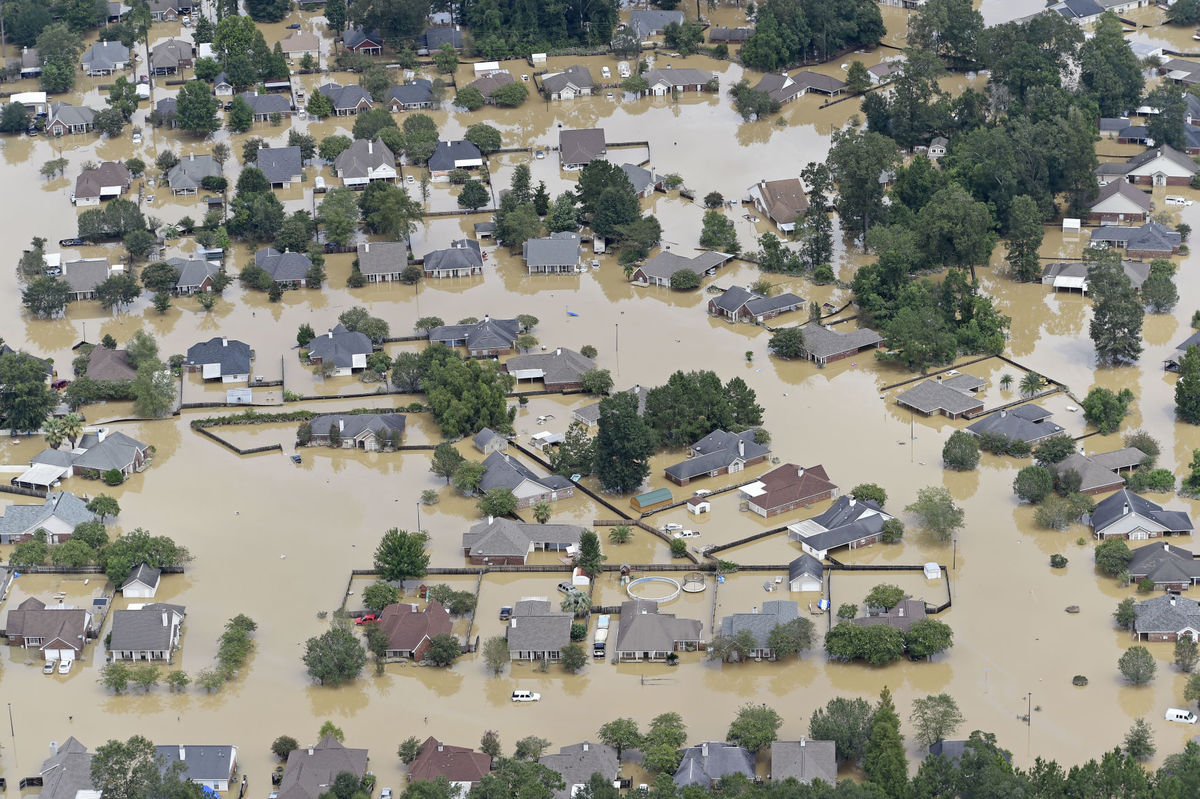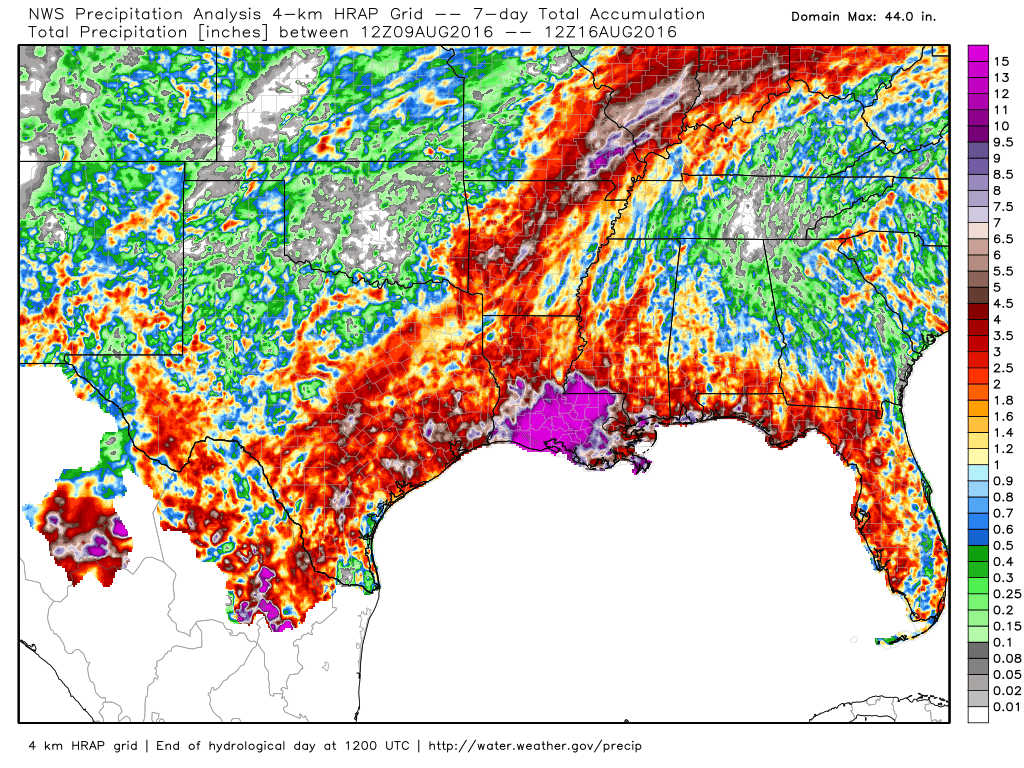
Parts of Louisiana Devastated by Flooding; National Media Quiet

It's an election year, the Olympics are on, and crazy guys are climbing Trump Tower with suction cups attached to their hands and feet. With these and other "important" news stories (often told by animated GIF) taking up precious air time, you'll be hard-pressed to find significant news coverage of events that don't include shocking statements from political candidates or click-worthy media.
Usually, however, weather is just the type of story that can grab headlines. When it comes to weather coverage, everyone is diving in these days. And yet that has hardly been the case when it comes to the recent flooding in Louisiana.
Of late, even a middle-of-nowhere tornado is a story 24 hour news networks will cover until blue in the face. But strangely, news has been slow to emerge to the world on the immense disaster in Louisiana. To their credit, the often criticized for lack-of-weather-programming Weather Channel has done a tremendous job covering the situation down there.
Epic rainfall
The rain started Thursday, August 11, and continued into the weekend, with heavy rain falling across much of the northern Gulf Coast. A bullseye for the heaviest rainfall set up over southern Louisiana, with totals in excess of 20" common around Baton Rouge. In the map below – you'll see it maxes out at 15" – all that pink across southern LA indicates totals greater than 15", and in many cases totals were well past that value.

Capital Weather Gang: How over 2 feet of rain caused historic flooding in Louisiana in less than 72 hours
A look at the CoCoRaHS – a citizen-based weather reporting network – rainfall reports from the weekend help tell the story in greater detail. Here we see some multi-day reports nearing 30" (!!) of rain across the region (especially northeast of Baton Rouge proper), with reports of 10 - 20" of rain being most common. You can zoom and pan the map to explore, selecting a green circle will offer further details.
Stu Ostro shared an impressive look at what was maybe best described by the Weather Prediction Center as "an inland sheared tropical depression". In other words, this event was caused by deep tropical moisture in combination with a surface and upper low pressure tandem causing massive rainfall over 72 hours:
Radar of #LouisianaFlood from Thu am when heavy rain started evolving inland to Sat pm when it finally diminished pic.twitter.com/Cat919VqEL
— Stu Ostro (@StuOstro) August 15, 2016
Media dropping the ball
On the same morning a reporter from WRBZ News Tweeted that it's estimated 100,500 people lost everything in Livingston Parish alone, the image below was the CNN homepage. As you can see, there is just one mention of the flooding, and it's a report noting that actor Wendell Pierce's lost his home. While tragic, of course, the headline makes no mention of the tens of thousands of other people that lost their homes as well.

According to the Louisiana Local News (NOLA) it is estimated that 75% of the homes in Livingston Parish are a complete loss, and responsible for the displacement of the over 100,000 in this Parish alone. In all, over 15,000 people had to be rescued in Livingston Parish.
As of this morning eight people have been reported to have lost their lives due to this event. While the loss of property and human displacement is staggering, any loss of life with weather events is truly heartbreaking and something meteorologists work very hard to prevent by preparing people for what is coming. But, even with great preparation, sometimes terrible disasters happen.
On the flip side, response to these disasters is aided tremendously by coverage. People generally want to help – whether it is through donations of supplies, time, or money. Of course, when no one knows quite how bad things are, that help can come slowly or even never come.
Related: Here's how you can help Louisiana flood victims
Theories to the muted post-storm coverage abound. Maybe it's because it wasn't named storm. A hurricane that created this much destruction surely would have derailed the news of the day train a bit more. Or, maybe we'll so chock-full of "Breaking News" that it's hard to discern what's really important anymore.
But for cable networks trying to fill 24 hours worth of news on a daily basis they really have dropped the ball on this one, and for our presidential candidates spending their days bickering over talking points, there are a lot of folks out there reeling from tremendous loss this weekend that could use your leadership and support. Maybe if those running for office, and the elected officials already there to serve used their voice to the wiser, we'd see more on this story of tremendous human struggle and resilience, and less mind-numbing banter. At least for a few days.
Ian Livingston contributed to this story.
